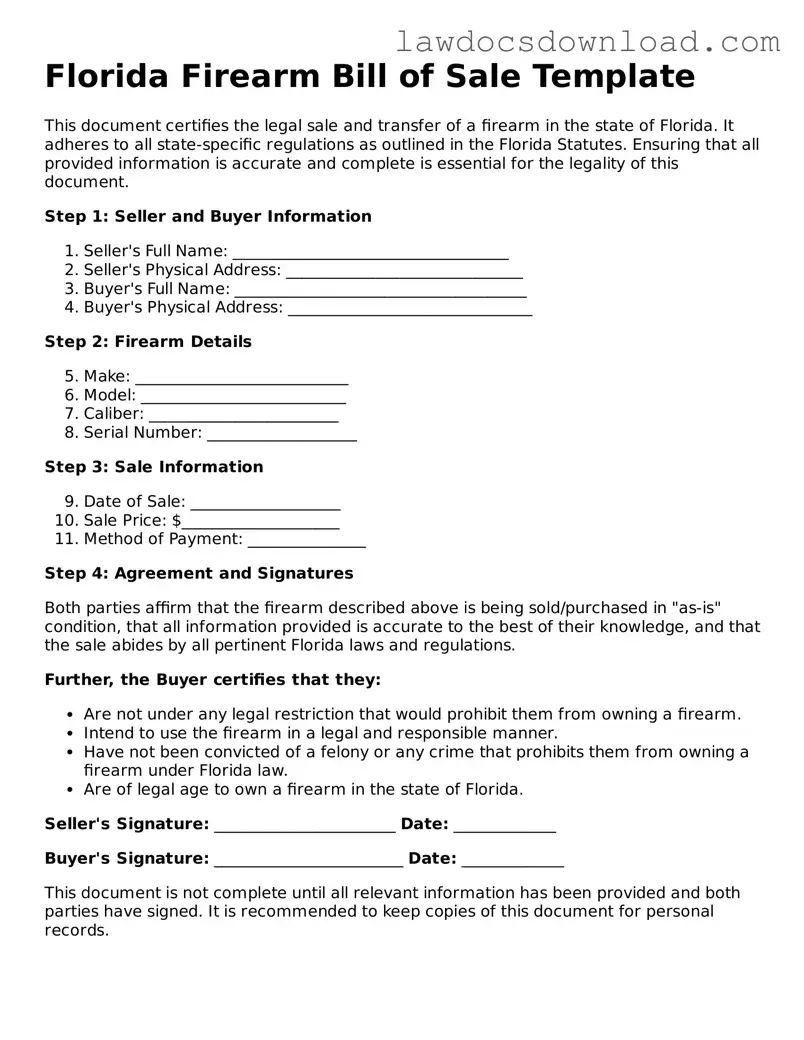The Florida Firearm Bill of Sale form is akin to the Vehicle Bill of Sale Form, as both document a legal transaction between two parties. Just as a Vehicle Bill of Sale solidifies the sale and transfer of a car or truck from one person to another, the Firearm Bill of Sale does the same for firearms. They both include essential information such as the make, model, and serial number of the item being sold, alongside the price and personal details of the buyer and seller.
Similarly, a Boat Bill of Sale Form shares common ground with the Firearm Bill of Sale. It's used when boats change ownership. This document captures crucial details about the boat being sold, including its type, length, make, and any identifying numbers, mirroring the firearm form's emphasis on identifying features and ensuring both parties have a clear record of the transaction.
Another parallel document is the Equipment Bill of Sale Form, which, like the firearm form, records the sale of items such as machinery or office equipment. It details the condition and specific characteristics of the equipment being sold, ensuring transparency and agreement on what exactly is being transferred, much like the thorough detail expected in a firearm sale.
The General Bill of Sale Form is a broader version that can be applied to numerous types of personal property transactions, including firearms. It serves a similar function by documenting the sale and confirming the transfer of ownership, with spaces to describe the item sold, the sale amount, and identifying information of the involved parties.
Likewise, the Pet Bill of Sale Form records the sale of animals, focusing on the transfer of ownership of pets. Although it may seem different at first glance, it's similar because it ensures both buyer and seller agree on the terms of the sale, including the health and condition of the pet, akin to how a firearm bill might detail the condition and specifics of the weapon sold.
The Business Bill of Sale Form is also comparable as it documents the transfer of ownership of a business. This includes listing assets that are part of the sale, just as the firearm bill lists the details of the firearm. It's a critical document ensuring that all assets being transferred are clearly detailed and agreed upon.
Lastly, the Real Estate Bill of Sale Form is used in the sale of real estate property, and although selling a property differs vastly in scale and regulations from selling a firearm, both forms function to record and validate the agreement between buyer and seller. They detail the terms of the sale, price, and identify the parties involved, ensuring the legality of the transaction.

